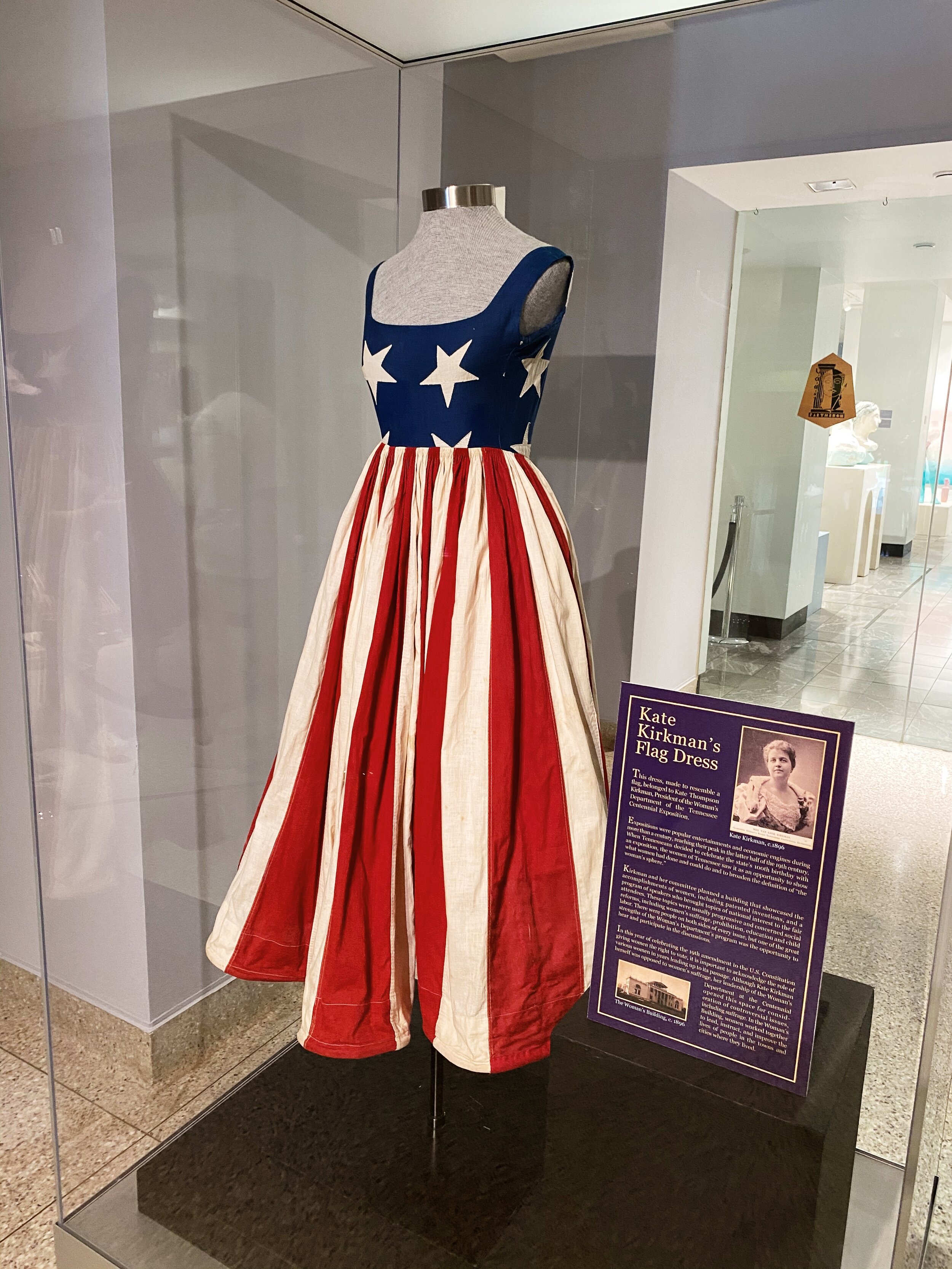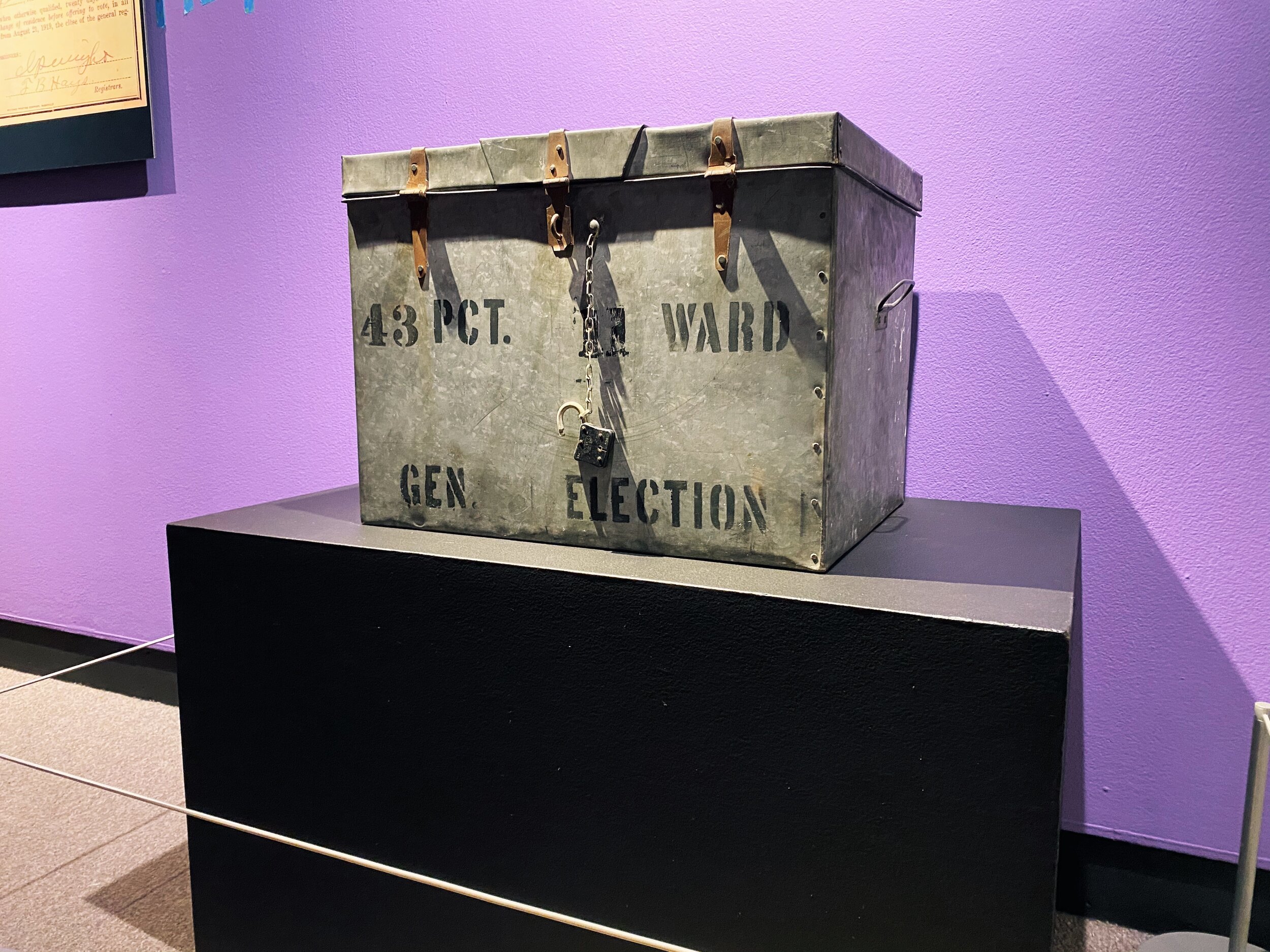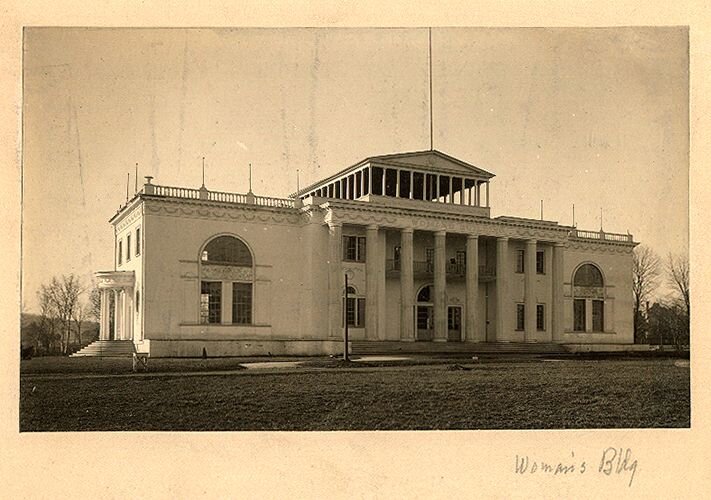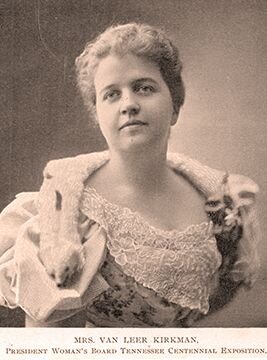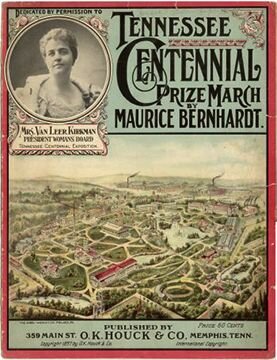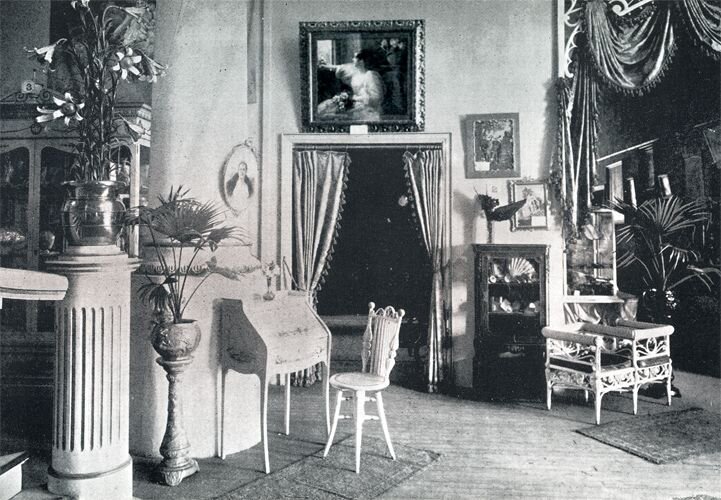The Parthenon, in partnership with Centennial Park Conservancy, will present a new exhibition, We Have a Vision: Nashville Women from the Centennial to Suffrage – Kate Kirkman, Anne Dallas Dudley, Kate Burch Warner, and Frankie Pierce. The exhibit, which will take place in the Parthenon’s West Gallery from July 17, 2020 through January 13, 2021, examines the role of four influential Nashville women, beginning with conversations about women’s suffrage that took place at the Tennessee Centennial Exposition in 1897 and continuing through the ratification of the 19th amendment in 1920.
Join us for live Virtual Symposia on Facebook:
September 26 at 6 PM - Steps Toward the Vote: Women's Political Activism in the Centennial Exposition and Beyond led by Nashville Historian, Carole Bucy
October 29 at 6 PM - Philosophically Bound Together: African American and White Women and the Right of the Franchise led by Professor Linda Wynn
We Have a Vision: Nashville Women from the Centennial to Suffrage will use garments that belonged to Kate Kirkman from the 1890s and the 1910s to anchor an examination of her role and that of the Woman’s Department at the Tennessee Centennial Exposition in fostering a conversation about women’s suffrage that continued beyond the dates of the Exposition. The exhibition also considers the work of Anne Dallas Dudley, Kate Burch Warner, and Frankie Pierce whose work in the cause of equal suffrage helped ensure ratification of the 19th amendment by the Tennessee state legislature in August 1920. Ratification passed by one vote, making Tennessee the 36th and final state necessary for the amendment to become law. Additional exhibit objects, such as rare photographs of the Woman’s Building and the women who are the focus of the exhibit, souvenirs, music from the Exposition, and a ballot box from 1920 have all been loaned by Nashville collector and historian David Ewing.
“We are thrilled to shine a light on these four women who, along with many others, contributed their time and energy to the debate concerning women’s right to vote. It is inspiring, too, that women on both sides of the issue were able to set aside their differences to work together for a common cause during World War I,” said Wesley Paine, Parthenon Director. “As a woman, I am deeply grateful that Tennessee legislators made the enlightened vote to ratify the 19th amendment, making it law that I, several generations later, can make my voice heard in the selection of those who will govern.”
Kate Thompson Kirkman, Chair of the Woman’s Department at the Tennessee Centennial Exposition, led a committee of socially prominent and active women from across the state in organizing a building and contents that showcased the accomplishments of Tennessee women. The Woman’s Department hired architect Sara Ward Conley to design the building and invited speakers of national prominence to discuss social and political issues that were in the forefront of nationwide debates. Among those speakers was Susan B. Anthony, and her speech at the Exposition concerned the right of women to vote. Kirkman and her committee were not always in agreement with the positions of the speakers they invited—in fact, Kirkman eventually joined those opposed to women’s suffrage—but they made a space for the discussions to take place.
Anne Dallas Dudley was a mother and a society leader who was able to combat the stereotype of suffragists as man-hating radicals. Her financial resources and gift of diplomacy allowed her to travel and speak across the country in support of women’s right to vote. She helped organize and lead suffrage parades in 1914, 1915, and 1916 from near the capitol to Centennial Park, where she spoke to more than 2,000 people from the steps of the Parthenon.
Kate Burch Warner, a generation older than Dudley, also moved in well-to-do social circles. She used her organizational skills to strengthen state-wide suffrage organizations and gave the keynote address at the 1916 suffrage march. Articulate and persuasive, she was Governor A.H. Roberts’ choice to lead Tennessee’s Ratification Committee.
J Frankie Pierce was an African American leader and fierce advocate for education along with other causes such as childcare, settlement houses, and voting rights. She helped organize women through churches and social clubs to press for changes that would improve the lives of African Americans in Nashville. When Tennessee lawmakers, in an effort to forestall the federal equal suffrage law, gave women a limited right to vote in local elections, Pierce and her colleague Dr. Mattie Coleman registered more than two-thousand voters. Her eloquence and stature in the community were recognized when she was invited to speak at the May 1920 state suffrage convention in the house chamber of the Tennessee state capitol.
The Parthenon is open Tuesday through Saturday from 9 AM to 4:30 PM and Sunday from 12:30 PM to 4:30 PM. Museum visitors must wear a face covering, per the Mayor's Executive Order No. 7.
Thank you to the Finucane & Buntin families, Humanities Tennessee, Tennessee Arts Commission, Sandra Schatten Foundation, and Centennial Park Conservancy for generously underwriting this exhibit and to Nashville historian David Ewing for loaning items to the exhibit. Thanks to consulting scholars Carole Bucy, Davidson County Historian and Professor of History at Volunteer State Community College, and Professor Linda Wynn, Assistant Director for State Programs at Tennessee Historical Commission and Professor of History at Fisk University.
Photo Hunt Challenge
Download the Photo Hunt’s official map and rules, here.
UPCOMING SYMPOSIA:
OCTOBER 29 AT 6 PM: Philosophically Bound Together: African American and White Women and the Right of the Franchise led by Professor Linda Wynn
Note: Upcoming Symposia will be held live via Zoom Webinar
PAST SYMPOSIA:
Did you miss our latest virtual symposium, Steps Toward the Vote: Women's Political Activism in the Centennial Exposition and Beyond led by Nashville Historian, Carole Bucy? Watch below!





